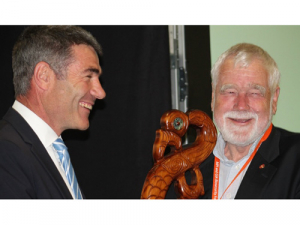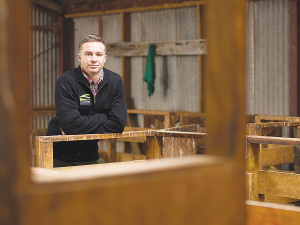The newly launched Biosecurity 2025 Direction Statement will shape the long-term future of biosecurity in New Zealand, says Primary Industries Minister Nathan Guy.
The long term plan was launched today at the 2016 Biosecurity Forum in Auckland and follows widespread public consultation earlier this year.
“Biosecurity 2025 will guide New Zealand’s biosecurity system over the next decade. It provides a shared direction to ensure we can cope with increased challenges such as increasing trade, more complex markets and supply chains, and rising tourist numbers.
“The primary sector is a major part of our economy, making up around half of all our exports. This is why biosecurity and protecting our producers from unwanted pests and disease has always been my number one priority.”
Guy says Biosecurity 2025 is the culmination of nearly two years of work, drawing on the input of people involved in biosecurity across New Zealand.
“What we’ve got now is a roadmap to achieve important goals around raising public awareness of biosecurity, getting people to take action, making smarter use of information and having the best tools, rules and processes.
“The first of the five key strategic directions, ‘A biosecurity team of 4.7 million’ is about participation on a grand scale, with every New Zealander and every New Zealand business becoming part of the team.
“This document sets ambitious targets, including ensuring by 2025 that at least 75% of adult New Zealanders understand biosecurity and why it’s so important to New Zealand.”
Other targets to be reached by 2025 include:
Having 90% relevant businesses actively managing pest and disease risks, a publicly-accessible network that enables electronic access to organism data held by central government agencies, regional councils and Crown research institutes.Public and private investment of at least $80 million in science for biosecurity, with at least 50 percent of the investment focused on critical biosecurity areas.Identifying 150,000 skilled people that can be quickly drawn on to support responses to biosecurity incursions.
“Implementation of the direction statement will require collaborative input across the entire biosecurity system. This will involve central and regional government, iwi, industry partners, community groups, and other biosecurity system participants.
“We have identified some important initial actions but there is still a lot to decide about how to reach the shared goals. One of the first steps will be to establish a joint steering group with representatives of the key biosecurity players to begin this work.
“Another step will be the development of an engagement plan to increase participation right across the biosecurity system. Everyone in New Zealand has a part to play in the system and everyone benefits from it. If you’re a farmer, grower, gardener, tramper, or nature lover – you all have something at stake in the future of our biosecurity.”
At the forum today Guy also presented Dr John Hellstrom with the inaugural Minister’s Award for Biosecurity, recognising a lifetime of outstanding contributions. Among other roles, Dr Hellstrom led the development of the original 2003 Biosecurity Strategy and is a former Chair of the National Animal Welfare Advisory Committee.
A copy of the full document is available at https://www.mpi.govt.nz/document-vault/14857



















